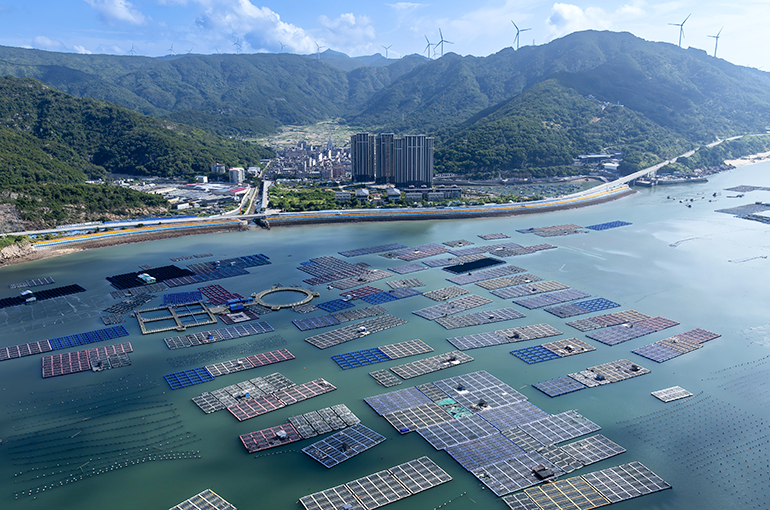Select Language:
The collective gross ocean product of China’s three primary marine economic zones in the north, east, and south has experienced significant growth over the past five years. The northern region’s output increased by 33.1% to CNY 3.19 trillion (approximately USD 448.6 billion) in 2022 compared to 2020. The eastern zone saw a 37.7% rise to CNY 3.34 trillion, while the southern region’s gross marine output grew by 33.3% to CNY 3.79 trillion, according to a report from the Ministry of Natural Resources released on October 29.
Overall, China’s marine economy value advanced 5.9% to CNY 10.5 trillion (roughly USD 1.5 trillion) in 2024, surpassing the CNY 10 trillion mark for the first time. Known as the ocean economy, this sector encompasses a wide range of industries such as fishing, shipping, coastal tourism, mineral extraction, and offshore energy.
The national marine urban centers, including Shanghai, Shenzhen, and Qingdao, are continually improving their competitiveness on the global stage, the ministry noted. Cities like Tianjin, Dalian, Ningbo, and Xiamen have made notable progress in marine fisheries, modern shipping services, and the development of marine pharmaceuticals and bio-products. Meanwhile, Qinhuangdao, Lianyungang, Beihai, and Sanya have emerged as high-quality marine tourism hubs.
However, the industry faces considerable challenges. Experts indicate that establishing a comprehensive science and technology innovation framework for the marine sector and maintaining stable global supply chains are critical issues. There is a need for increased investment in advanced marine technologies and the development of leading companies to bolster competitiveness.
To address these issues, coordinated efforts are essential to transform and upgrade traditional marine industries, foster new growth sectors, and plan for future development. Recommendations outlined in China’s 15th Five-Year Plan, announced on October 28, emphasize strengthening ocean development, utilization, and conservation. The plan advocates for enhanced land-sea coordination to improve maritime governance.
Key focus areas include advancing marine scientific and technological innovation, consolidating the strengths of the marine equipment manufacturing industry, expanding emerging marine sectors, and developing modern shipping services. Additionally, the plan highlights increasing the exploitation of marine energy resources and sea areas, safeguarding maritime ecological zones, and restoring their environmental health.







